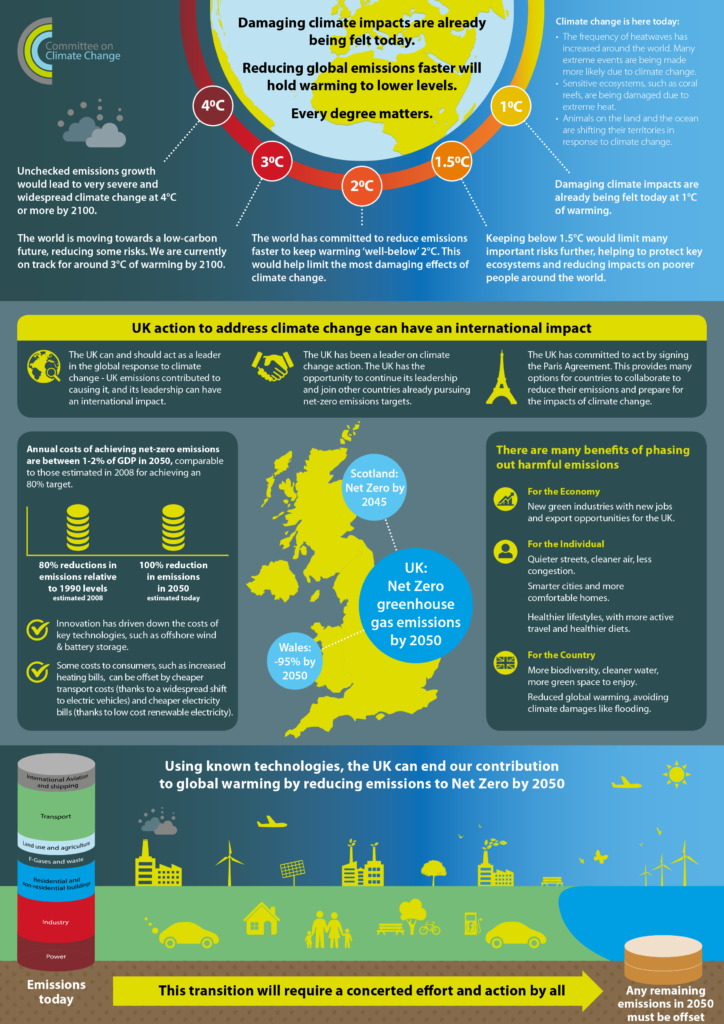02 May 2019
|
| The heat pump industry has welcomed the Committee on Climate Change report which says a net zero target for greenhouse gas emissions by 2050 is both achievable and affordable using existing technologies. The Net Zero report highlights the need for swift implementation of a regulatory framework to achieve the decarbonisation of heat and recommends a range of policies, including support for low carbon heating and a nationwide training programme to upskill the existing workforce. |
| Graham Wright, chairman of the Heat Pump Association (HPA), said said: “The HPA wholeheartedly supports the report’s recognition that urgent action is required to meet a net-zero target and welcomes the specific recommendations for decarbonising heat within the publication. “Momentum is now gathering among the public acknowledging the need to change the way we heat our buildings and, as highlighted in the report, known technologies, such as heat pumps, offer a clear solution for this. “Heat pumps offer an extensive opportunity to reduce the UK’s emissions, as well as helping to address other policy issues such as fuel poverty and air quality. The Future Homes standard, set to be introduced in 2025 and supported within this report, represents the ‘low-hanging fruit’ of heating in new builds, which, in addition to those properties off the gas grid, should be the immediate focus for the Government.” Bean Beanland, chairman of the Ground Source Heat Pump Association, said: “The association is very pleased that the CCC recognises the contribution that heat pumps can make towards achieving net zero by 2050. “Ground source heat pumps are a proven, efficient and low carbon technology that can deliver heating to households and businesses at the lowest operating cost. A heat pump deployed today is progressively lower in carbon emissions over its lifecycle as the electricity grid is decarbonised further. “The nocturnal temperature stability of the in-ground asset also provides for beneficial load shifting opportunities that other technologies cannot match. This allows owners of ground source to consider adding thermal storage to take advantage of agile electricity tariffs where, under the current generation mix, low cost overnight electricity broadly equates to the lowest carbon factor electricity. “To accelerate heat pump deployment across the country, we want to work with Government and other parts of industry to improve and monitor standards to ensure the strongest possible consumer confidence and protection, and to provide high quality transition training for existing conventional heating sector technicians to both protect jobs and to meet the uplift in market demand.” Phil Hurley, managing director of NIBE Energy Systems and recently appointed vice-chair of the HPA, said: “The changes required to meet this new target will be significant but they are essential. As noted by the committee, we are now in a crucial period in the efforts to tackle climate change and the report published today calls for increased ambition. We welcome this and the recommendations within the publication. “The UK has the ability to reduce emissions to net zero by 2050 using current technology and building on existing policy frameworks. However, to achieve the target we must ramp up activity and set to work immediately. Decarbonising our building stock is a particular challenge and one that must be urgently addressed. Policy thus far has failed to effectively drive take up of heat pumps, but to meet the target, a mass roll out is needed. “The report highlights the need for Government intervention and NIBE Energy Systems looks forward to working with Government, the Committee on Climate Change and industry partners to develop a supportive policy framework which will enable a smooth and cost-effective transition to a net zero future.” The Net Zero report can be viewed here. |
Content continues after advertisements









